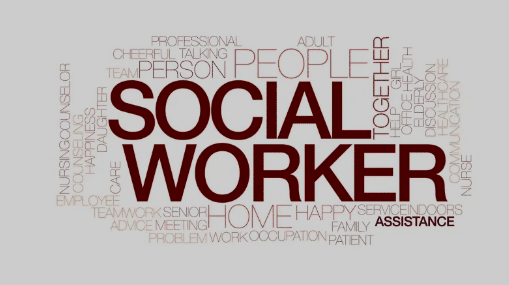
Social work is a profession driven by a commitment to social justice, human rights, and the well-being of individuals and communities. Social workers, the compassionate architects of change, engage in diverse roles to address social issues, advocate for marginalized populations, and foster positive social change.
The Scope and Reach of Social Work
The scope of social work is vast, encompassing a spectrum of roles in various settings such as healthcare, education, mental health, child welfare, and community development. Social workers serve as catalysts for empowerment, resilience, and societal transformation.
Education and Training for Social Workers
1 Academic Foundations
Becoming a social worker typically involves obtaining a bachelor’s or master’s degree in social work (BSW or MSW). The educational curriculum covers topics such as human behavior, social policy, research methods, and interventions, providing a comprehensive foundation for practice.
2 Field Education and Practicum
Field education, often in the form of practicum or internship, is a pivotal component of social work training. It offers students real-world exposure to diverse populations, helping them apply theoretical knowledge, develop clinical skills, and cultivate empathy.
3 Licensing and Professional Certifications
In many regions, social workers are required to obtain licenses or certifications to practice. These credentials ensure that practitioners meet ethical and competency standards. Specialized certifications, such as those in clinical social work or school social work, further enhance career prospects.
Roles and Specializations in Social Work
1 Clinical Social Workers
Clinical social workers provide therapeutic services, diagnosing and treating mental, emotional, and behavioral disorders. They work in diverse settings, including private practices, hospitals, and mental health agencies, helping individuals navigate life’s challenges.
2 School Social Workers
School social workers contribute to the academic success and well-being of students. They address social and emotional issues, collaborate with educators and families, and advocate for a positive and inclusive school environment.
3 Medical Social Workers
In healthcare settings, medical social workers support patients and their families in coping with illness, facilitating access to resources, and navigating complex healthcare systems. They play a crucial role in holistic patient care.
4 Child Welfare Social Workers
Child welfare social workers focus on ensuring the safety and well-being of children. They intervene in cases of abuse or neglect, provide family support services, and collaborate with legal entities to safeguard the rights of vulnerable youth.
Challenges and Rewards in Social Work
1 Compassion Fatigue and Burnout
The emotionally demanding nature of social work can lead to compassion fatigue and burnout. Social workers must prioritize self-care, seek supervision, and build a supportive network to navigate the emotional toll of their work.
2 Advocacy Amidst Systemic Challenges
Social workers often confront systemic challenges such as poverty, inequality, and discrimination. Advocating for systemic change requires resilience, collaboration, and a steadfast commitment to addressing root causes of social issues.
3 Impactful Moments of Transformation
The rewards of social work are profound, manifesting in moments of positive transformation in clients’ lives. Witnessing resilience, empowerment, and the restoration of hope reaffirms the meaningful impact social workers have on individuals and communities.
4 Continuous Professional Development
To stay effective in their roles, social workers engage in continuous professional development. Training workshops, conferences, and staying informed about evolving social policies are essential to enhancing skills and staying attuned to best practices.
Impact of Social Workers on Individuals and Society
1 Individual Empowerment and Well-Being
Social workers empower individuals to overcome challenges, develop coping mechanisms, and enhance their overall well-being. Through counseling, advocacy, and resource mobilization, social workers facilitate positive change on a personal level.
2 Strengthening Families and Communities
At the family and community levels, social workers contribute to building resilience, fostering healthy relationships, and addressing social determinants of well-being. Their interventions have a ripple effect, strengthening the fabric of society.
3 Social Justice and Advocacy
Social workers are champions of social justice, advocating for equitable policies, challenging discriminatory practices, and amplifying the voices of marginalized communities. Their advocacy contributes to broader societal shifts towards inclusivity and fairness.
4 Crisis Intervention and Community Resilience
In times of crisis, social workers play a vital role in community resilience. Whether responding to natural disasters, pandemics, or social unrest, their ability to provide support and resources helps communities navigate adversity and rebuild.
Future Trends and Evolving Dynamics in Social Work
1 Telehealth and Technology Integration
The integration of telehealth and technology in social work is an emerging trend. Virtual platforms allow social workers to reach clients more conveniently, especially in remote or underserved areas, and leverage digital tools for interventions and assessments.
2 Trauma-Informed Practice
The recognition of trauma’s pervasive impact has led to a focus on trauma-informed practice in social work. Social workers are increasingly trained to understand and address the effects of trauma, fostering more sensitive and effective interventions.
3 Global Perspectives and Cultural Competence
As societies become more interconnected, social workers need to embrace global perspectives and enhance cultural competence. Addressing the unique needs of diverse populations requires an understanding of cultural nuances and a commitment to cultural humility.
4 Intersectionality and Inclusive Practice
The evolving discourse on intersectionality underscores the interconnectedness of various social identities and systems of oppression. Social workers are embracing inclusive practices that recognize and address the intersecting factors influencing individuals’ experiences.
Conclusion
Social work stands as a dynamic and essential profession, committed to uplifting individuals, families, and communities. The diverse roles, ethical considerations, and societal impact make social work both challenging and deeply rewarding. As social workers navigate evolving landscapes, they remain steadfast in their dedication to creating positive change and fostering a more just and compassionate world.





